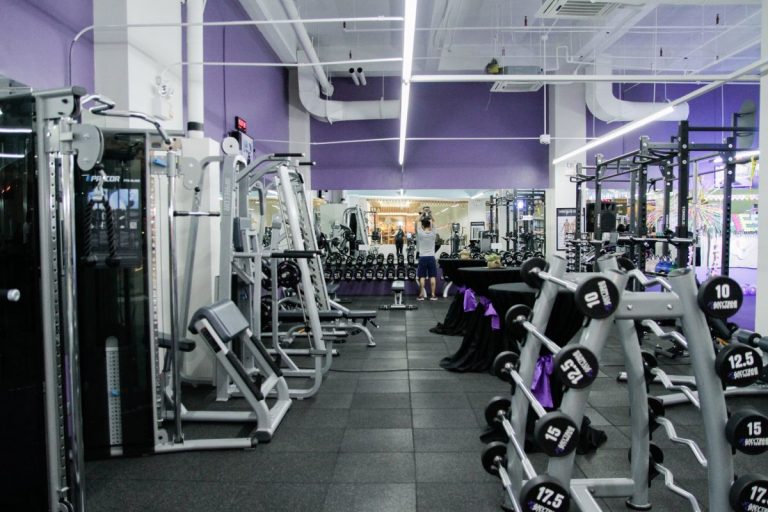4 Good Reasons to Hire a Personal Trainer
When it comes to health and fitness, we live in pretty exciting times.
There are more choices available, more cost saving options and it’s become the social norm to train on a regular basis.
Gyms are offering zero contract memberships, 24 hour access, super low monthly costs.
However, with all the options and all the information available, some may still not be achieving the results they are looking for, or may not be feeling the benefits of their programmes or group exercise sessions.
If, like many of you no doubt do, you struggle to make sessions work , or find it difficult to make the changes you want to your body or are new to fitness, then you may want to consider personal training sessions.
Personal trainers are there to support, coach and guide you to your end goal. Whatever you’re training for; competition, weight loss, holiday, wedding, specific event, a personal trainer can plug the gap between classes and training alone.
Personal trainers have studied hard, earned their fitness qualifications and have a greater understanding of how the body works and how to help you achieve your fitness goals. If any of the below points sounds like you, then you should seriously consider some sessions with a personal trainer.

1.You’re Not Seeing Results
Training hard, tracking your macros, keeping a log of everything you do, progressive overload, adequate rest time.
Key components of any good programme.
In the early stages you will no doubt see some progress. If you’re a gym newbie, that progress will be heightened.
However, over time, you may find that progress stalling, you’ve hit a plateau, your results have actually regressed. Maybe your programme is old and boring and you can’t summon the mental strength to hit the gym.
This is when it may be time to seek the advice of a personal trainer.
A personal trainer is there to help you create new, realistic and achievable goals. They can help you programme, fix you form and push you a little bit harder than you might push yourself. A personal trainer can also make it a bit easier for you. They can design your programme, time your rest periods and help you strip the bar and set up your next station, meaning you can focus purely on the training.
In the short term, this takes off some of the pressure of training. In the longer term, it can add real value to your training and see you hitting your goals and exceeding your previous achievements in the gym.

2. You Don’t Know Where to Start
If you’re new to exercise, you realise how complex it is and we’re not born with the knowledge of how to do it.
When facing the task of setting up a complete exercise schedule, you may feel so overwhelmed you don’t do anything.
Trainers know everything that goes into a complete program: Cardio, weight training, and flexibility training.
And then there are all of the elements you have to figure out, from what activities to do to how to fit it all into a busy schedule.
If you have no idea what you’re doing, a trainer can help you:
- Figure out the right activities for you: Maybe you don’t even know what would work for your body, schedule or available equipment. A trainer may be able to suggest activities that fit with all of those areas.
- Help you put together a reasonable program: A trainer can help guide you in exactly how to start and how much exercise you can handle at first.
- Help you with the basics: The workouts you do are based on the F.I.T.T. principle, meaning you choose the frequency, intensity, time and type of workout you’re doing and manipulate those elements over time. A trainer can help you navigate all of those things, showing you how to:
- Figure out how hard to work during exercise and how to monitor your exercise intensity
- With weight training, he or she will show you how to choose exercises, weights, reps, and sets
- Use different tools like a heart rate monitor or activity tracker to enhance your workouts.
- Help you with your schedule: It’s often this that gets the most confusing. A trainer can sit down and help you go through your calendar and figure out when you can work out and what you’ll do on those days you’re not working with a trainer.
- Help you maximise your time while keeping you within your own limits so you don’t overdo it.
3. You Need Accountability & Motivation
Motivation comes from all kinds of places, both internally and externally.
You may have some intrinsic reason to exercise, such as wanting to be healthier or to get off your high blood pressure medication.
But, you also need extrinsic motivators to keep exercising – such as wanting to lose weight to look better in a bikini for your summer holiday.
A personal trainer can become that motivator.
By hiring a trainer you’re creating motivation in a variety of ways such as:
- Financially: You’re investing money into reaching your goal, so just showing up for your sessions so you don’t lose that money may be enough to keep you going.
- With your time: You’re not just investing money, you’re investing your time as well, a precious resource we all want to protect. That may add to your motivation to exercise.
- Having a standing appointment: There’s nothing like a regular standing appointment to get you in gear for a workout. You don’t want to disappoint the trainer or yourself.
4. You have a specific illness, injury or condition
If you have some specific injury or condition, your doctor may want you to exercise. But how do you do that if you’re in pain or have to work around an injury?
That’s where an experienced trainer comes in. Trainers work with all kinds of people and many of them may have specialties that allow them to work with clients with special needs.
Just some things your trainer may be able to help you with:
- Exercising with arthritis
- Exercise with heart disease
- Exercising with diabetes
- Dealing with old or chronic injuries
- Helping overcome back or neck pain
- Helping to increase your balance, core strength, and stability if you’ve had a fall or need to work on those areas.
- Creating a program that works on the areas you need without re-injury or other issues.
Just some things to think about before going this route:
- Always talk to your doctor and get clearance for exercise. If you have a condition, your trainer may require it before he or she will train you.
- Work with your physical therapist, if you have one. Your trainer may want to get in touch with your physical therapist to find out what exercises you should or shouldn’t do.
- Make sure your trainer is experienced with your condition. Ask about any classes or certifications he or she has taken to make sure that the trainer knows what he’s doing.
To Finish Up…
Hopefully these pointers have given you something to think about!
If you decide to go ahead and hire a personal trainer, check out this blog first on Discover the best Personal Trainer in Kettering for You, for key questions to ask a prospective personal trainer.